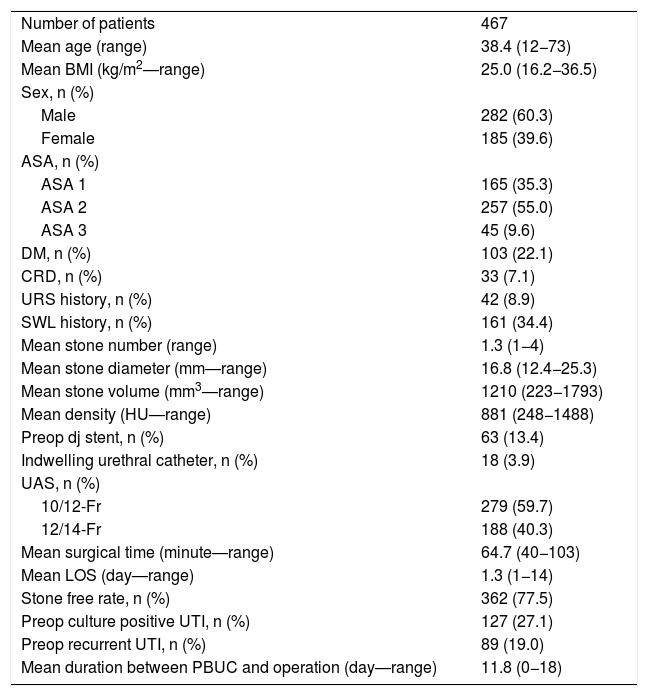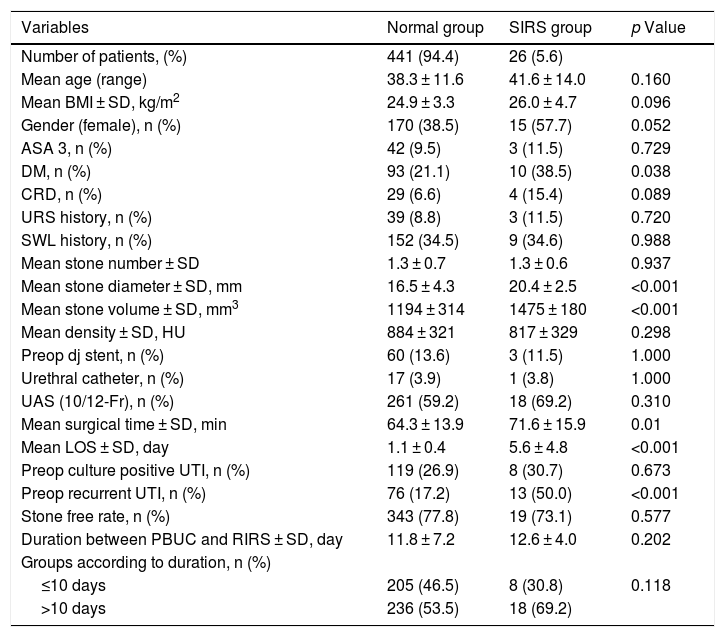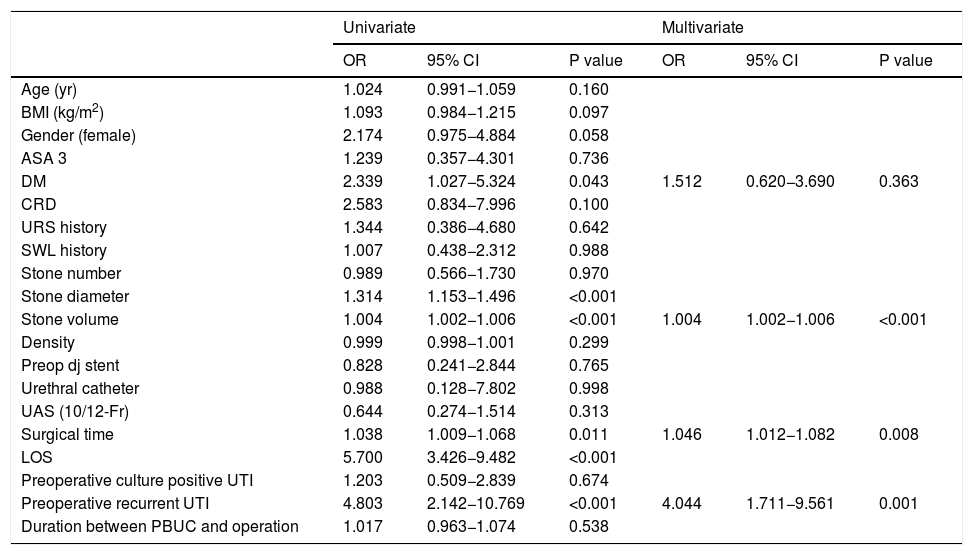To identify the preoperative and intraoperative factors that might cause systemic inflammatory response syndrome (SIRS) after retrograde intrarenal surgery (RIRS), and to investigate the effect of time elapsed between the date of performing preoperative bladder urine culture (PBUC) and surgery date on postoperative SIRS.
Materials and methodsFour hundred sixty-seven patients who had RIRS between January 2013 and June 2020 constituted the target population of this study. PBUC were obtained from all patients before undergoing surgery. Postoperatively, patients were closely monitored for fever and other signs of SIRS. Univariate and multivariate logistic regression analysis were performed to reveal the predictive factors for SIRS after RIRS.
ResultsThe entire study cohort consisted of 467 patients. The rate of SIRS was 5.6%. In univariate analysis, the rate of DM, recurrent urinary tract infection (UTI) history, surgical time, and stone burden were significant predictive factors for SIRS. In multivariate analysis, the rate of recurrent UTI history, surgical time and stone burden were observed to be statistically significant predictive factors. Time elapsed between the date of performing PBUC and surgery date was not different between the SIRS group and the normal group.
ConclusionWe conclude that the time between the date of performing PBUC and surgery date is not an influential factor for SIRS. Clarifying this issue with prospective studies may be useful, as endourologists frequently encounter this situation in daily practice.
Identificar los factores preoperatorios e intraoperatorios que podrían causar el síndrome de respuesta inflamatoria sistémica (SRIS) tras la cirugía intrarrenal retrógrada (CRIR), y estudiar el efecto del tiempo de espera entre la fecha del urocultivo vesical preoperatorio (UCVP) y la fecha de la cirugía en el SRIS postoperatorio.
Materiales y métodosLa población objetivo la constituyeron 467 pacientes intervenidos mediante CRIR entre enero de 2013 y junio de 2020. Se obtuvieron UCVP de todos los pacientes antes de la cirugía. En el postoperatorio, los pacientes recibieron seguimiento estrecho en busca de fiebre y otros signos de SRIS. Se realizaron análisis de regresión logística univariante y multivariante para revelar los factores predictivos de SRIS después de CRIR.
ResultadosLa cohorte completa del estudio estaba formada por 467 pacientes. La tasa de SRIS fue del 5,6%. En el análisis univariante, la tasa de diabetes mellitus, los antecedentes de infección urinaria recurrente, el tiempo quirúrgico y la carga litiásica fueron factores predictivos significativos de SRIS. Según el análisis multivariante, la tasa de antecedentes de infección urinaria recurrente, el tiempo quirúrgico y la carga litiásica eran factores predictivos estadísticamente significativos. El tiempo transcurrido entre la fecha de realización del UCVP y la fecha de la cirugía fue el mismo entre el grupo con SRIS y el grupo normal.
ConclusiónEl intervalo de tiempo entre la fecha de realización del UCVP y la fecha de la cirugía no es un factor influyente para el SRIS. Aclarar esta cuestión mediante estudios prospectivos puede ayudar a resolver este problema con el que los endourólogos se enfrentan con frecuencia en la práctica diaria.
Artículo
Comprando el artículo el PDF del mismo podrá ser descargado
Precio 19,34 €
Comprar ahora










